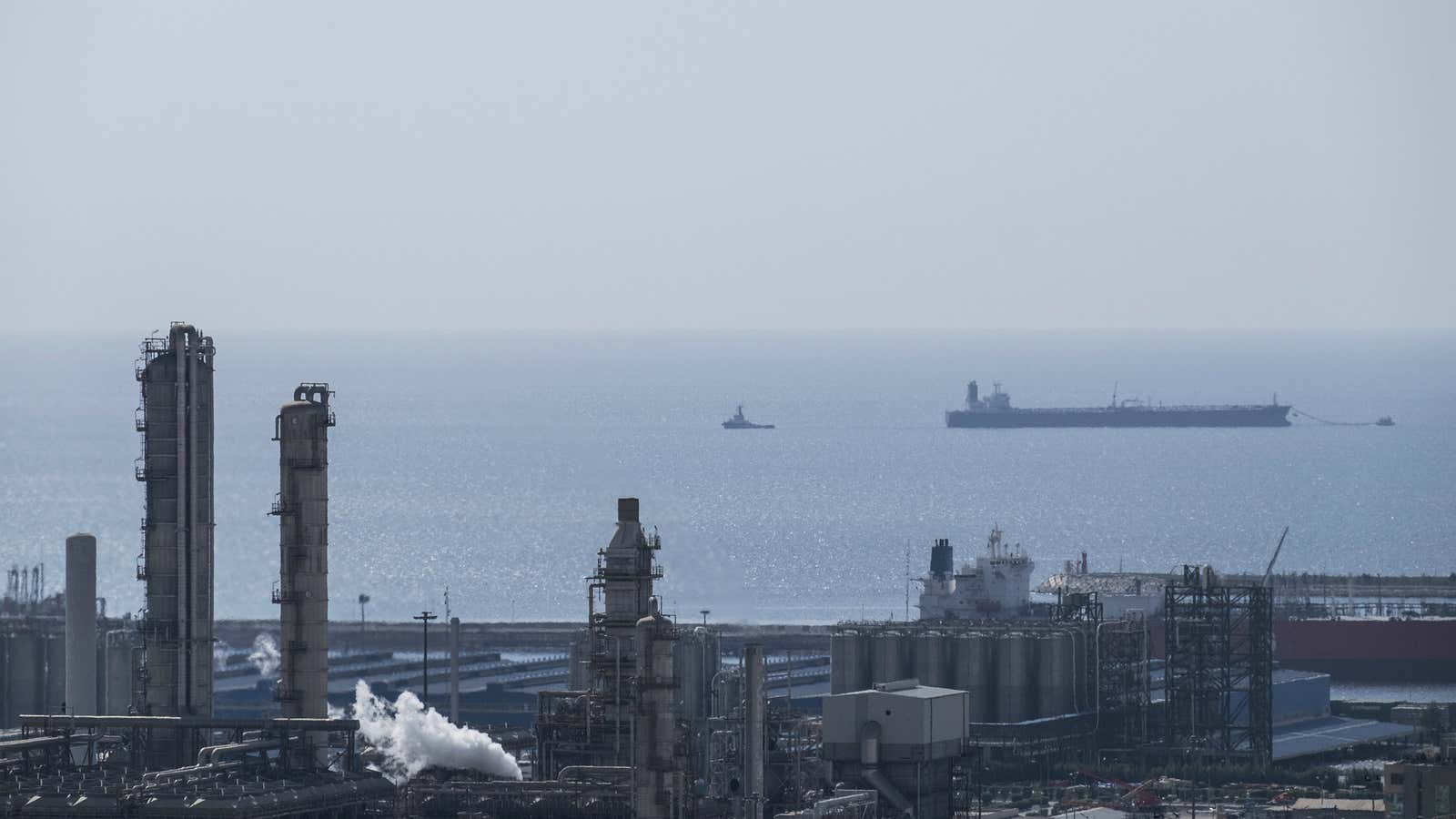When international sanctions against Iran were lifted at the start of 2016, Europe was fast to revive economic relations with the country. This blossoming of trade and investment might soon be cut short.
Last week, Donald Trump announced that he would pull the US out of the deal that called for Iran to curb its nuclear program in return for the easing of sanctions. Now that the US is reintroducing sanctions—and adding some more for good measure—several European countries are counting the cost.
EU trade with Iran increased from €7.7 billion ($9.1 billion) in 2015 to €21 billion last year (pdf). This makes the bloc Iran’s third largest trading partner, after China and the United Arab Emirates. Within the EU, Italy is Iran’s biggest trading partner, with €5.1 billion in imports and exports, up from €1.7 billion in the year before sanctions were lifted. The southern European nation and Iran have recently signed a €5 billion credit agreement that will enable Italian companies to invest in Iran with government backing. Almost every EU country boosted trade with Iran over the past two years, with the only exceptions being Bulgaria, Estonia, Latvia, and Lithuania.
After a week of wrangling, European companies face the risk of breaching US sanctions if they continue to do business with Iran. The US has given all companies between three and six months to wind down their business, and is bringing in so-called secondary sanctions that stop foreign firms from doing business with Iran if they wanted to maintain ties with US banks and other businesses. The US sanctions affect European companies far more than American ones. The combined total of American imports and exports with Iran was only $170 million in 2017.
This week, EU officials told Tehran that they plan to protect European companies from US sanctions, but admit this will be challenging. Companies, for their part, appear to be playing it safe by saying that they won’t pursue new deals with Iran, sensing that Washington doesn’t seem in the mood to compromise (paywall). After all, given the choice between doing business with Iran or the US, the prudent decision is to pick the world’s largest economy.
Since the sanctions were lifted, the European country to boost trade most aggressively with Iran, relatively speaking, is Greece. In the past two years, trade between the countries increased by a whopping 3,500%, as Greece went from Iran’s 19th largest trading partner in the EU to its sixth.
In early 2016, Greece’s biggest oil refiner, Hellenic Petroleum, announced that it was going to restart buying crude oil from Iran, the first European refiner to do so. Hellenic Petroleum now gets 22% of its crude oil from Iran and Iraq. In 2001, 80% of its crude came from Iran, and for several years the company owed Iran several hundred million euros for crude received in 2012 that wasn’t paid for before sanctions were imposed that year. (It has since cleared a large portion of that debt.)
When something bad happens to the European economy, Greece always seems to be among the hardest hit.
